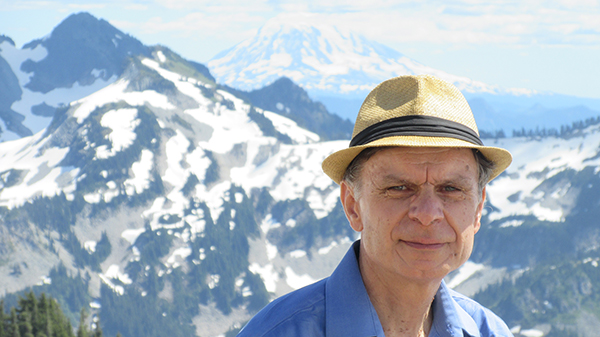Krzysztof Burdzy received his PhD in 1984 from the Department of Statistics at the University of California at Berkeley, under the supervision of Professor Jim Pitman. He was a postdoc at the University of California at San Diego and held positions at the Polish Academy of Sciences and Purdue University before joining the Department of Mathematics at the University of Washington in 1988. His research interests include Brownian motion and its applications to analysis and, more recently, processes with ballistic paths. He is a Fellow of the IMS and the AMS, a member of the Washington State Academy of Sciences, and received the 1992 Rollo Davidson Prize and the IMS Carver Medal in 2016.
Krzysztof Burdzy’s Medallion Lecture will be given at SPA 2019 in Evanston, Illinois, in July 2019: see https://sites.math.northwestern.edu/SPA2019/SPA2019.html.
On Archimedes’ principle and Fermi acceleration
Archimedes’ principle is over 2,000 years old but there is no mathematical literature on this law of physics. The most likely reason is that Archimedes’ principle follows easily from the formulas for pressure. This approach leads to some subtle questions. I will describe an approach to Archimedes’ principle using classical mechanics, mixed with some stochastic ideas.
“Fermi acceleration” refers to the unlimited growth of energy in models for particles reflecting from moving walls. I will discuss the question of the emergence of Fermi acceleration in rotating drums with hard balls under gravitation. Without gravitation, no Fermi acceleration arises in a rotating drum because the system is integrable.
Both topics are related to Lambertian reflections, also known as Knudsen law, modeling random reflections of light or gas particles from rough surfaces.
This is joint work with M. Duarte, C.E. Gauthier, R. Graham, J. Malecki and J. San Martin.

Comments on “Medallion lecture preview: Krzysztof Burdzy”